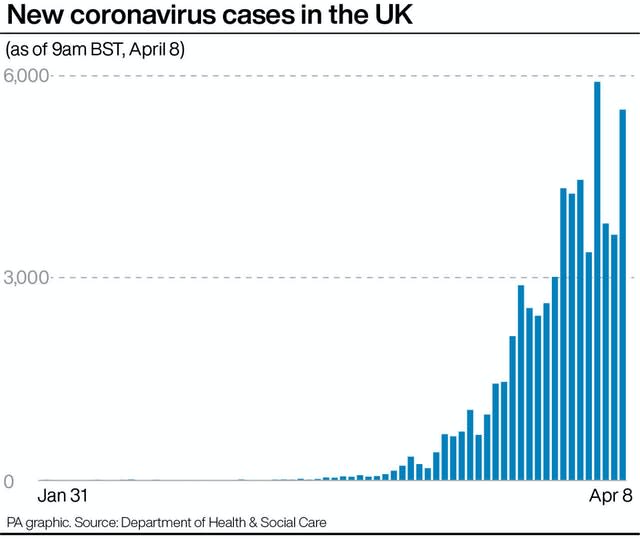Government expands WhatsApp coronavirus information service
The Government’s coronavirus information service on WhatsApp has been expanded to better tackle myths and disinformation about the virus.
Last month, the free chatbot service was launched to guide people towards official guidance on the virus, in the hope it would help ease the burden on the NHS.
It has so far sent more than one million messages to the public.
The service will be updated with advice on a number of new topics, but with a particular focus on myth-busting and disinformation, WhatsApp said.
The new content will include advice for people at high risk of contracting the virus, more details on social distancing and advice for those who are pregnant or breastfeeding.
It also includes financial information on how to check if someone is eligible for Statutory Sick Pay or Universal Credit and how to apply for financial help if someone is self-employed.

The free service, which is powered by artificial intelligence to provide responses, can be accessed by adding 07860064422 to their phone contacts and then message the word “hi” in a WhatsApp message to get started.
A set of menu options is then presented to the user, from which they can choose from and be sent relevant guidance related to that topic.
Matt Idema, WhatsApp chief operating officer, said: “People all over the world are using WhatsApp more than ever to connect with and support their friends, family and communities during this crisis.
“Now, thanks to the UK Government’s Coronavirus Information Service, the British public can also get official, timely and trustworthy advice about Coronavirus on WhatsApp.
“We will continue to support the UK Government to develop the service with updated information and official guidance as the situation develops.”
The MoD has sent a team to support the Cabinet Office’s work to tackle online misinformation as part of its Covid Support Force.
A spokesman said: “A team from the Ministry of Defence is supporting Cabinet Office’s work to tackle dangerous misinformation such as supposed online ‘experts’ and fraudulent phishing scams.”

 Yahoo News
Yahoo News 